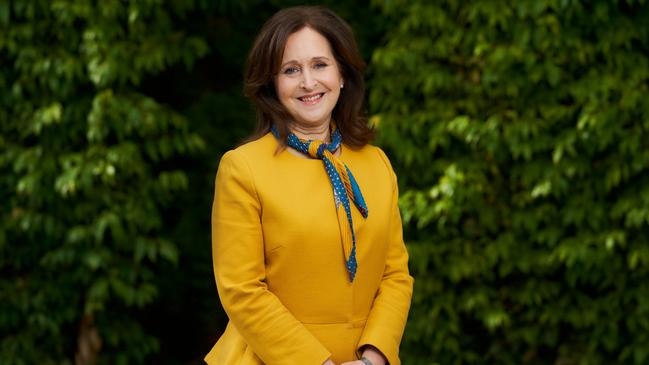Industry super funds set to step up the pressure for more women execs: HESTA CEO Debby Blakey
Institutional investors are set to step up the pressure on companies to appoint more women senior executives, according to HESTA boss Debby Blakey.

Institutional investors are set to step up the pressure on companies to appoint more women senior executives, according to the chief executive of the $76bn health industry super fund HESTA, Debby Blakey.
In an interview with The Australian, Ms Blakey said there was growing interest among investors in having women make up at least 40 per cent of the senior leadership teams of the companies they invested in.
She said she expected other institutional investors would follow the lead of HESTA, which has vowed to vote at annual shareholder meetings against the chairs of companies which have no women in their senior leadership ranks.
“We are seeing an enormous interest from investors in getting involved and engaging strongly on the issue of gender diversity,” Ms Blakey said.
She was speaking on the release of the first report by the 40:40 Vision group of 37 companies, which have set themselves the target of having women make up 40 per cent of their executive teams by 2030.
The companies — which include ANZ, Westpac, BHP, Ramsay Health, South32, BlueScope, Tabcorp, Viva Energy, Mirvac, NextDC, Origin, Viva Energy, Domino’s, Webjet, QBE, Iress, TPG Telecom and Challenger — make up some 25 per cent of the market capitalisation of ASX 300 companies.

Founded by HESTA in 2020, the 40:40 Vision movement, which has the backing of investors with more than $6 trillion in funds under management, is aiming to encourage more ASX 300 companies to commit to the 40 per cent target for female leadership at the very top.
The investors include HESTA and other leading industry super funds such as the Australian Retirement Trust, Aware Super, TelstraSuper, the industry super-backed investment vehicle IFM Investors, and the Australian Council of Superannuation Investors (ACSI).
Other major investors include BlackRock, Fidelity, First Sentier Investors, Pendal, Perennial, Schroders, WaveStone and Aberdeen Standard Investments.
Ms Blakey said encouraging more women in the senior leadership teams of companies was now seen by investors as a way to improve a company’s financial performance.
“We see this as a financial issue which will impact the financial outcomes of our members,” she said.
She said 40:40 Vision was a “collaborative voice from the investor community” which was “important in driving (more gender diversity)” in ASX 300 companies.
The report shows 51 per cent of the signatory companies have already achieved their goal of having 40 per cent women in their senior executive ranks, compared with only 23 per cent in the broader ASX 300 index.
Ms Blakey said the attention of investors was expanding from pressuring companies to have more women on their boards towards having more women in senior executive leadership. She said chairs and company boards were important in setting the tone for company management.
Ms Blakey said the report of progress by the 37 signatories to 40:40 Vision showed the importance of companies setting targets for senior leadership teams.
She said target setting had “proven to be an effective tool in advancing gender diversity, with companies focused on professional development, recruitment and succession planning’’.
She said the signatory companies to 40:40 Vision reported having more gender diversity improved “talent attraction, company culture, skill sets, team performance and reputation”.
Ms Blakey said a report by the Bankwest Curtin Economics Centre in 2020 had shown a 10 percentage point increase in the share of women in the ranks of top tier managers had led to a 6.6 per cent increase in the market value of ASX-listed companies.
She said 100 per cent of the survey respondents of 40:40 Vision members believed diversity improved talent attraction, retention and company culture.
More than 90 per cent said it “delivered skill sets for future strategic needs, team performance, business results and company reputation”.
But she said there was a need for more transparency and consistency in reporting on the issue.
She said 36 per cent of all ASX 300 companies had not set any targets for improving the role of women in their executive teams.
“There is still a long way to go,” she said.
Ms Blakey rejected suggestions there could be a backlash in Australia against pressure exerted by investors to have more women on boards and at senior management levels.
She said some companies were cautious about signing up to the 40:40 Vision goals because they were concerned about the challenges it involved, particularly in industries which were traditionally male-dominated.







To join the conversation, please log in. Don't have an account? Register
Join the conversation, you are commenting as Logout